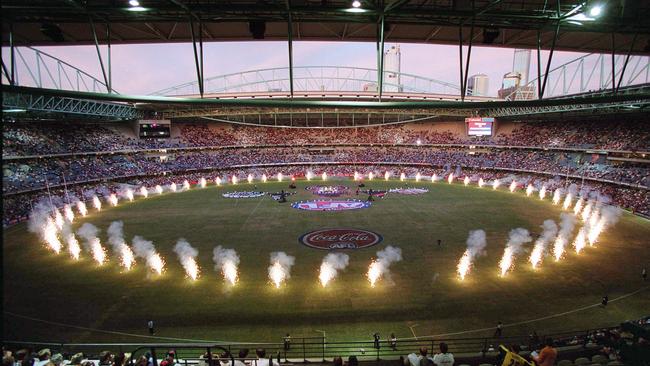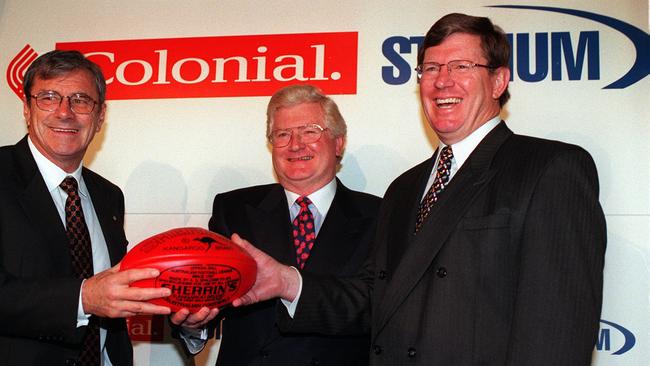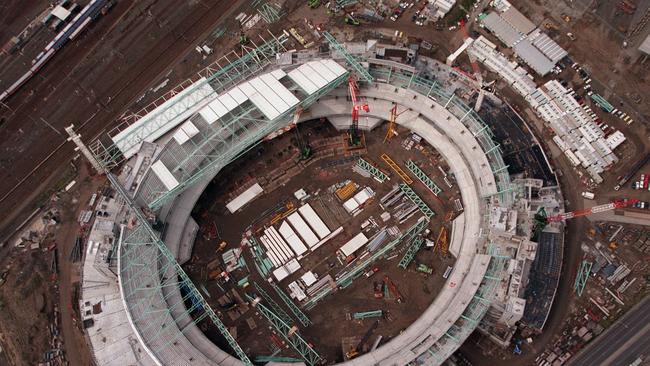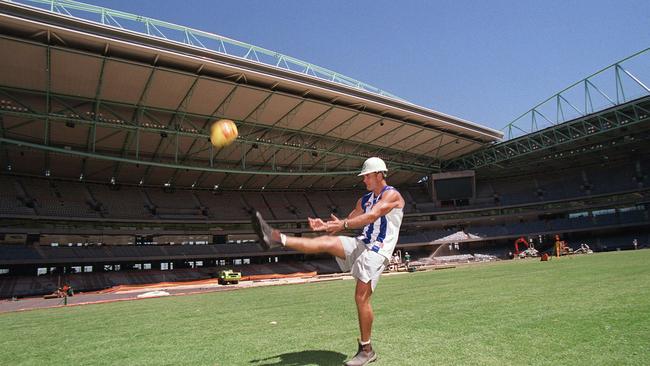Inside the Docklands Stadium deal that saved the AFL from coronavirus financial oblivion
It was the ultimate win-win for the AFL and the Victorian government. Little did the AFL know that this stadium deal would also save them when the coronavirus crisis turned up on its doorstep.

AFL
Don't miss out on the headlines from AFL. Followed categories will be added to My News.
This week the AFL went cap in hand to its bankers asking for $600 million, its prized jewel a $1 billion piece of collateral now known as Marvel Stadium.
As the NRL goes to war over its crumbling financial picture the AFL is safe in the knowledge that at the very worst it could sell its stadium.
The key to the asset underpinning the AFL’s prosperity was a canny deal that saw the league sell its Waverley Park headquarters and move 37 games a year to the new Docklands arena.
The massive caveat was that the AFL would inherit the freehold rights to the stadium in 2025 for just $30.
In 2016 the league bought the stadium nine years early, for $200 million, but as former AFL chief executive Wayne Jackson says, the deal was a watershed moment for the AFL.
Relive classic AFL matches from the 60s to today on KAYO SPORTS. New to Kayo? Get your 14-day free trial & start streaming instantly

“The stadium opened in 2000 but before that (then-premier) Jeff Kennett and the Liberals wanted to develop the Docklands precinct. As you know it was just a wasted area,” Jackson told the Herald Sun yesterday.
“And they formed the view they needed a big project to kickstart it, to drag it along. They came up with the idea of a sports stadium. The government thought of a rectangular stadium. That just didn’t make a lot of sense to us.
“Waverley was built like a saucer rather than a cup and had massive problems with viewing — it had never been finished, it had no public transport, it was in a rain belt, and it was too far away for masses of people to get to.
“So we convinced the Kennett government that building a stadium in Melbourne that wouldn’t cater for the AFL was shortsighted at best and foolish at worst.”
Why did the government agree to hand over such a lucrative asset?
Because it turbocharged the value of the suburb around the stadium, with the AFL’s concession that it would make Docklands its secondary venue.
It was an enormous decision given Waverley Park was in the southeast of Melbourne in a growth corridor.


MORE AFL NEWS:
Cricket’s Big Bash League scuppers hopes of December AFL finals at Marvel Stadium
AFL chief executive Gillon McLachlan guarantees all 18 clubs will survive COVID-19 hiatus
And yet the finances clearly added up. Waverley was sold to developer Mirvac to help finance the Docklands construction.
For years the AFL’s new showpiece was mired in controversy. The surface was poor and the economics for tenant clubs similarly dire.
But Jackson said not only did it force the MCG to refurbish to keep up with the state-of-the-art Docklands venue, it turned into the ultimate AFL asset.
“For a small down-payment we agreed to play 37 games a year for 25 years. That changed slightly but the fundamental principle was we would play those games and at the end of that time the stadium reverted to the AFL with full freehold and no mortgage,” he said.
“The AFL did their sums and decided they would buy the stadium early, and we always said it would be a magnificent investment.”

